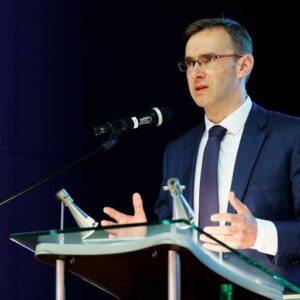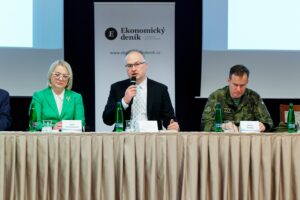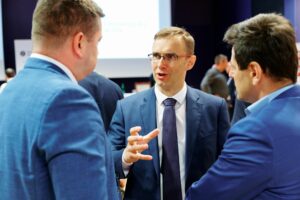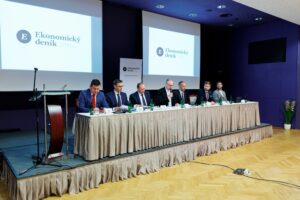Author: vibration
Slovak Innovation Centre for Defence and Security Technologies
Life Cycle Management of Military Equipment: Experiences, Expectations and Opportunities for Collaboration
Slovakia – Ukrainian Forum 🇸🇰🇺🇦 / Kharkov days in Košice
Košice, 13.-14. marec 2024
There is perhaps no more important and complex topic today than the issues related to the developments in our neighbourhood. Although the war has cruelly marred any subtext of the discussion on cooperation, the hope of a European perspective is opening up possibilities that few would have considered even 3 years ago.
Cooperation between municipalities on the renewal and transformation of the energy sector, as well as on technological innovation with a focus on aviation and space, are perhaps unusual but all the more interesting topics that we are addressing.
The Slovak-Ukrainian Forum is co-organised by ICE as part of a broader project with the Centre for Social and Psychological Sciences of the Slovak Academy of Sciences, v. v. i., and the Department of International Cooperation of the Kharkiv City Administration.
We are pleased that diplomats, politicians, government, university and business representatives from both countries accepted the invitation, as well as EC Executive Vice-President M. Šefčovič (online) and EU Ambassador to Ukraine K. Mathernova.
We believe that such discussions are conducive not only to better understanding, but also to identifying the potential for cooperation, which, despite the war, is extremely high and, if harnessed, will provide a strong development impulse for both Slovakia and Ukraine.
#slovakia #ukraine #forum #europskaunia #eu #innovations
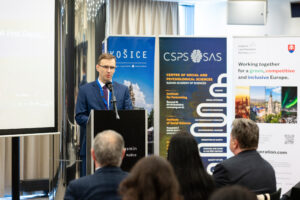

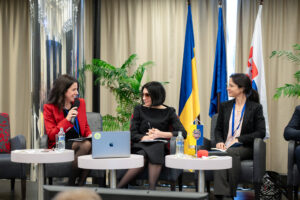
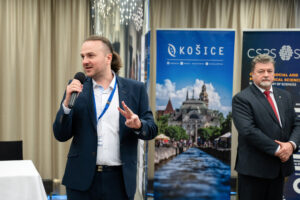
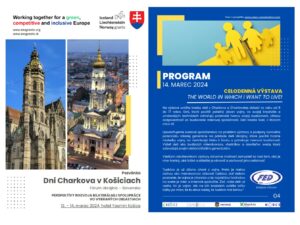
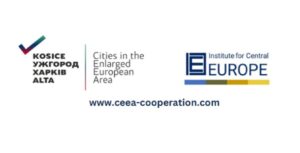
2nd National Cluster Conference
Trnava, 11.-12. marec 2024
ICE participated in the 2nd National Cluster Conference, which welcomed almost 40 cluster organisations from different sectors of Slovakia. We presented our project „Slovak Innovation Cluster for Defence and Security“, which we worked on the last year. The project was supported by the subsidy programme of the Ministry of Defence of the Slovak Republic to map the conditions and possibilities for the establishment of the first innovation cluster in the field of defence in Slovakia. International practice shows that clustering is an increasingly used form of intensifying cooperation between academia, industry, and government institutions within a country’s defence innovation ecosystem. Representatives of other cluster organisations and a foreign delegation from South Korea were interested in the new and innovative approach and ICE’s project in terms of strengthening the so-called culture of cooperation also in the defence innovation ecosystem in Slovakia. We also pointed out the macroeconomic benefits of establishing a cluster in the field of defence and security. The data show that investments in the defence sector are also worthwhile from a macroeconomic point of view due to the multiplication of significant benefits for other sectors and bringing finance to the GDP of the state. We have discussed this as well as other things. We thank the Slovak Innovation and Energy Agency for the invitation.
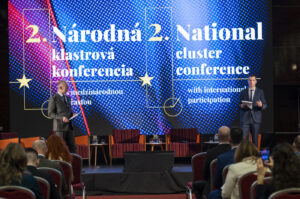
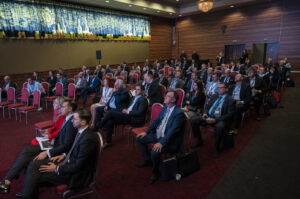
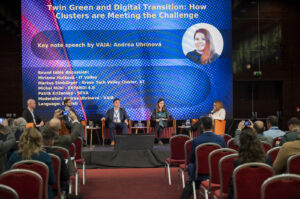
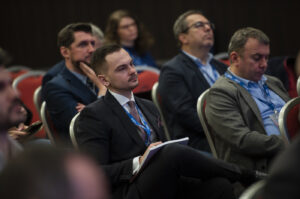
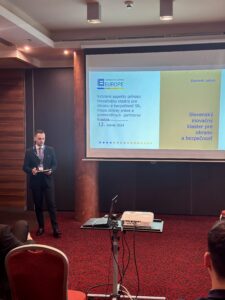
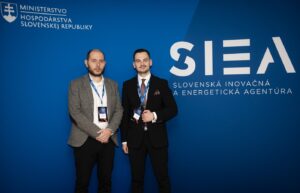
Professional symposium – Slovak Innovation Cluster for Defence and Security
Bratislava, 14.11.2023
Institute for Central Europe, c.a., organized an expert symposium to inform about the aims, objectives, and progress of the research project “Slovak Innovation Cluster for Defence and Security”. The project was supported by the Ministry of Defence of SR and aims to provide a comprehensive analysis including practical recommendations in the form of a working manual for the creation of the first specialised sectoral cluster for defence and security in Slovakia. We welcomed representatives of several ministries, state organisations, as well as academia and industry, who were excellent evaluators of the intention to create a specialised cluster in Slovakia.
The manual, which places the need for a cluster for defence and security in the Slovak realities, in the context of the need for international cooperation within the EU and NATO, also contains best practices from selected countries, the benefits of such a cluster for the economy, the rationale for the importance of promoting innovation in the field of defence and security, practical suggestions for the implementation of a sectoral cluster in Slovakia, as well as mapping of potential partners within Slovakia. Practice shows that the promotion of appropriate infrastructure to support innovation, the linking of (also already) existing capacities, and involvement in international projects is a necessity, but also a possibility of the appropriate use of already existing research and production capacities and the most appropriate form of public investment that can multiply their benefits. However, a prerequisite for the successful and efficient functioning of an innovation cluster is the adequate representation and active participation of selected research organisations, industrial entities, and public institutions.
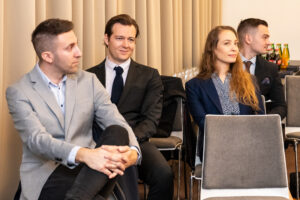
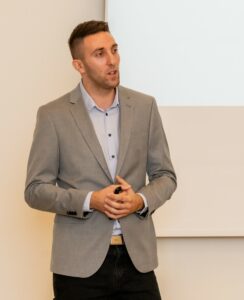
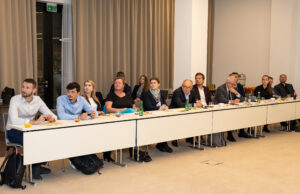
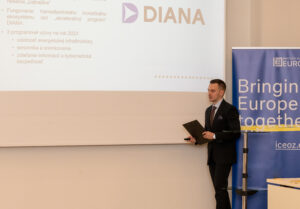
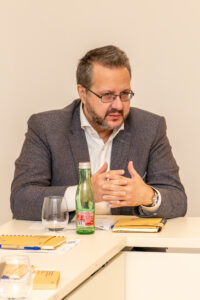
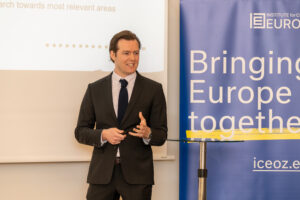
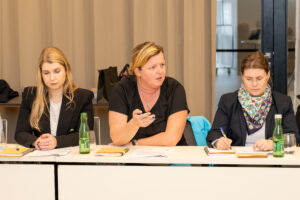
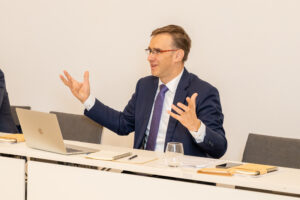
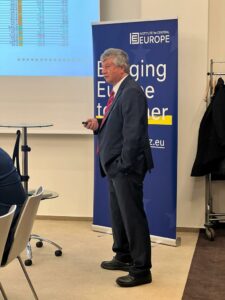
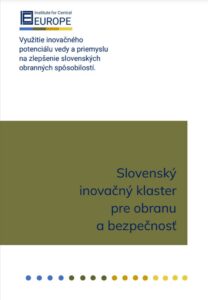
Slovak Innovation Cluster for Defence and Security
Estónsko, 6.10.2023 / Maďarsko, 12.10.2023/ Česká republika, 9.11.2023
International cooperation is a prerequisite for technological development and provides external know-how that can be used to strengthen and improve a country’s innovation capacity. ICE recognises the added value of such a collaborative approach. As part of its project “Slovak Innovation Cluster for Defence and Security”, which aims to map and assess the most appropriate strategy for the creation of a defence cluster in Slovakia, ICE representatives met with representatives of countries and organisations whose geographical proximity, characteristics and structural set-up are similar to Slovakia and whose excellence in the field of cluster establishment and management is unquestionable. Special attention was paid to 3 countries including Estonia, the Czech Republic, and Hungary. Estonia is one of the leading innovators in the field of defence, including dual-use technologies. ICE representatives met with representatives of the Estonian Defence Cluster, a non-governmental organisation that helps to increase the innovative potential of the modern defence industry, as well as the economy as a whole.
In Hungary, representatives of the Ministry of Defence briefed ICE representatives on Hungary’s approach to defence and innovation. When it comes to the Czech Republic, ICE representatives met with the representatives of the DSIA who explained the structure of cooperation between the Czech government and DSIA as well as the organisation’s role in the defence innovation ecosystem in Czechia. Besides the 3 target countries, ICE also devoted special attention to Denmark as one of the pioneers in the acknowledgement of the importance of the support of innovation and the top leaders in this field. When it comes to Denmark, ICE representatives attended a webinar with Klaus Bolving, Business Development Director, and former CEO of the Danish defence cluster, CenSec (Center for Defence, Space & Security). All the visits and the webinar with the Danish representative, Klaus Bolving, provided an overview of the different strategies applied in establishing and managing defence clusters as well as fostering innovation. We will use this information and incorporate it into our analysis and recommendations to the Slovak Ministry of Defence.
The project “Slovak Innovation Cluster for Defence and Security” to explore the possibilities of establishing and operating it is supported by the MoD of the Slovak Republic.
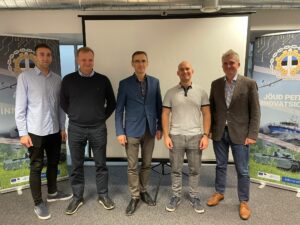
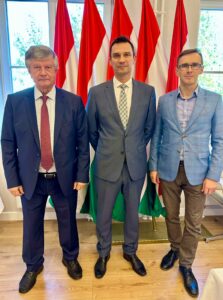
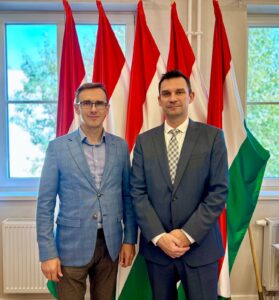
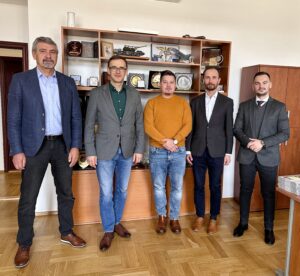
Life Cycle Management of Military Equipment: Experiences, Expectations and Opportunities for Collaboration
Bratislava, 27.9.2023
“Procurement of military equipment represents not only a potential improvement of defence capabilities, but most of the time also a significant burden on the budget of the Ministry of Defence and public finances as a whole. When assessing the price, the public usually encounters only the so-called acquisition price of the equipment, which often does not take into account the total life cycle including service, logistics, training, but also the cost of the actual decommissioning of the equipment from the use of the armed forces. Such a comprehensive view then shows a much more realistic view of the public requirements. It is therefore imperative that the complex process of assessing and procuring new military equipment is addressed through the lens of tracking all costs, which can give us a much more accurate/precise perception of the total costs required.
There are a number of modern approaches that can help reduce and streamline processes within the military equipment life cycle. The Institute for Central Europe (ICE) has therefore prepared an expert symposium which, in addition to highlighting this neglected yet critically important aspect of armed forces modernisation, will also discuss other options for reducing costs and streamlining processes within the overall lifecycle of military (especially land-based) equipment, including international cooperation. It is international cooperation that could be one of the key solutions in reducing overall costs throughout the life cycle of military equipment. The event was therefore attended by the highest representatives of the Ministry of Defence of the Slovak Republic, headed by the Secretary of State and Chief of the General Staff of the Slovak Armed Forces, the Military Envoy of the Federal Republic of Germany, as well as a delegation from the Czech Ministry of Defence and representatives of state industrial enterprises and private companies.
The event entitled “Life Cycle Management of Military Technology: Experiences, Expectations and Opportunities for Cooperation” was held thanks to the support of the Ministry of Defence of the Slovak Republic and Rheinmetall MAN.
https://iceoz.sk/konferencia-europska-azylova-politika-po-ukrajine/
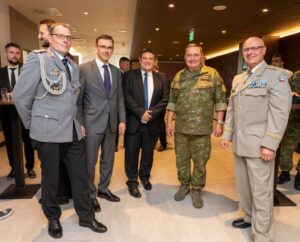
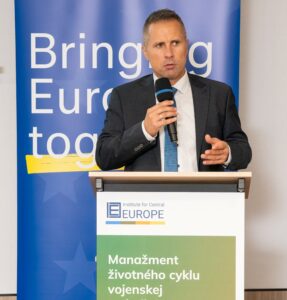
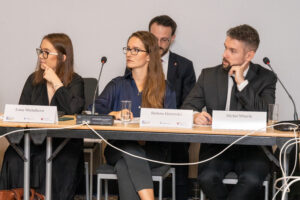
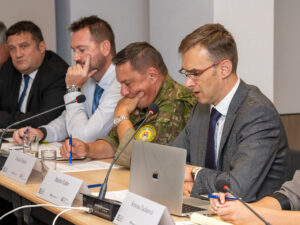
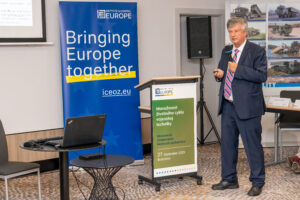
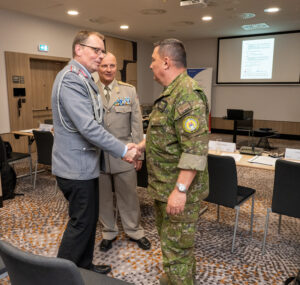
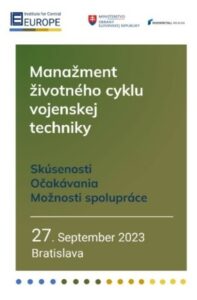
Conference – European asylum policy after Ukraine
Bratislava, 12.-13.7.2023
On 13 July, the conference European Asylum Policy after Ukraine was organised by the Institute for Central Europe in cooperation with the University of Liège and the University of Paris Cité in the framework of the ACRONYM project. The aim of the conference was to bring new perspectives on migration in the context of the ongoing war in Ukraine and the war-induced refugee crisis.
Four panel discussions were attended by MPs, representatives of the Ministry of Foreign and European Affairs of the Slovak Republic, migration policy experts, representatives of NGOs, academics and experts in the field of migration, who exchanged views on the topic and highlighted the gaps and shortcomings that hinder the adoption of effective decisions in the field of migration. The conference also highlighted the problem of politicians’ abuse of migration and emphasised the need to de-politicise the issue and reflect on migration through the prism of rationality based on facts.
The Central European Migration Research Hub was also launched at the conference as a virtual platform that will bring together and connect academics and experts in the field of migration from the Central European region and beyond. The platform is also intended to serve as a venue for sharing academic publications, migration and asylum projects, opportunities for collaboration, as well as various migration-related events and conferences, in order to facilitate networking and bringing people in the CEE region together on the topic. In the second part of the conference, the academics presented their scientific studies in which they highlighted the importance of the social and health perspective in the implementation of an effective asylum policy, the issue of discrimination against refugees who are members of minorities, and presented projects implemented by Slovak universities in the context of migration.
https://iceoz.sk/ekonomicky-dennik/
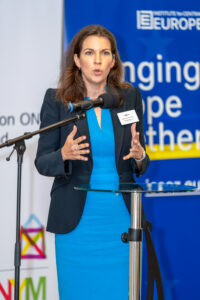
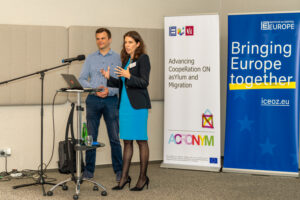
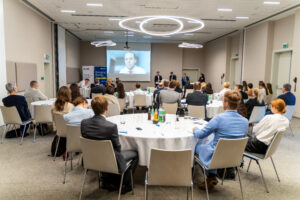
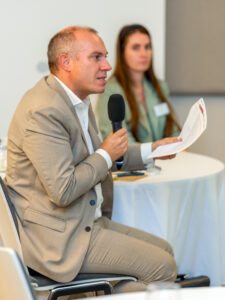
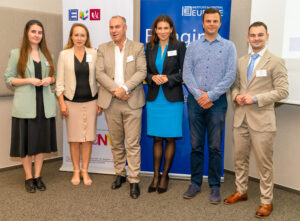
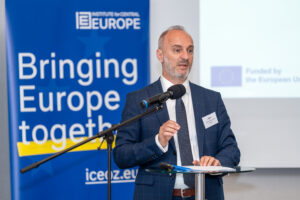
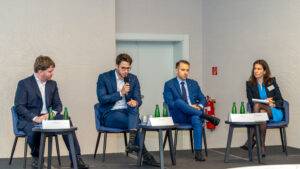
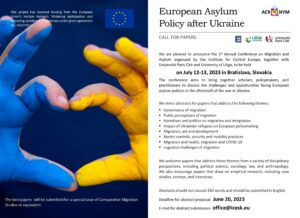
Economic diary
Praha, 2023
“Martin Fedor, Chairman of the Board of Directors of ICE, participated in a symposium of the Economic Daily focused on technology and defence strategy of the Czech Republic. The symposium was opened by Czech Defence Minister, Jana Černochová, who stressed the need to adopt and support a triple innovation spiral approach – linking the state, the private sector and academia – to acquire the defence capabilities and technologies needed to maintain a technological edge over our rivals. Martin Fedor stressed the need for investment in R&D and technology within the defence sector, as this is a prerequisite not only for maintaining technological progress but also a condition for future economic growth. In addition, he pointed to the need to find new financial and political instruments within the EU to support the ambitions set out.”
https://iceoz.sk/europska-unia-v-kontexte-sucasnych-vyziev/
